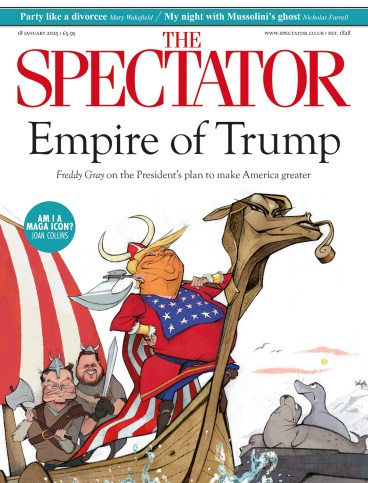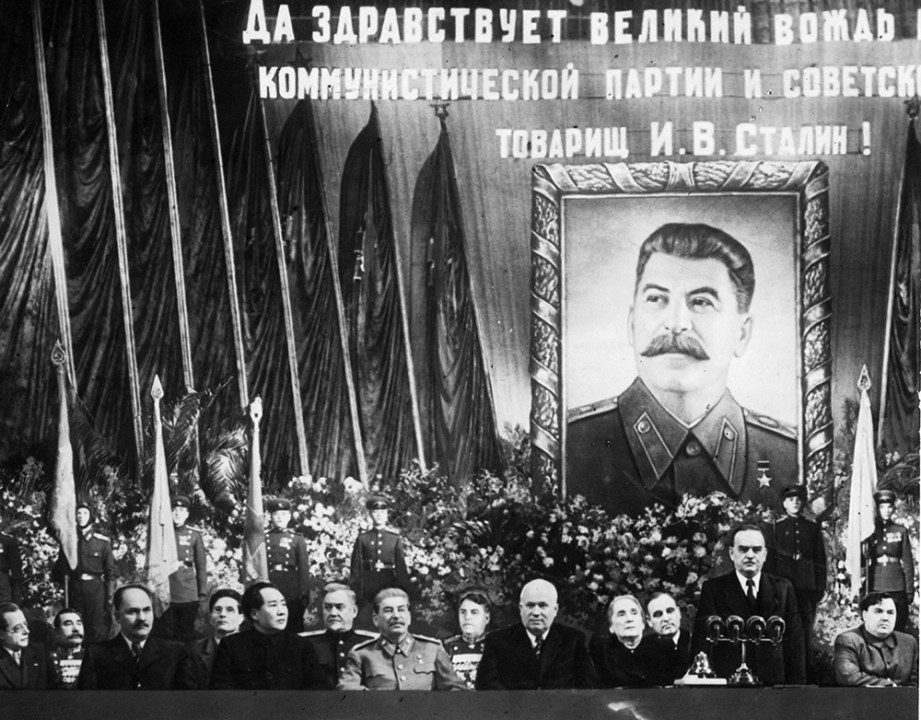
At around 9 p.m. on 5 March 1953 Sergei Prokofiev died of a brain haemorrhage on the sofa of his Moscow flat. He was 61, and had struggled for years with ill health. He had long complained of pain in his soul. Less than an hour later, the source of that pain, Joseph Stalin, died of a heart attack in his dacha on the outskirts of Moscow.
Prokofiev’s death wasn’t so much forgotten as ignored. The leading music magazine Sovetskaya muzyka devoted the first 115 pages of its new issue to Stalin; only then did it mention Prokofiev. A million people thronged the streets to see Stalin lie in state; only 15 attended Prokofiev’s funeral. A string quartet played beside Stalin’s bier. Its violinist, Veronika Rostropovich, cried inconsolably. ‘Leave me in peace,’ she told her colleagues. ‘I’m not crying for Stalin but for Prokofiev.’
Stalin listened to every new
recording, writing ‘good’, ‘average’ or ‘rubbish’ on the record sleeve
Stalin’s shadow also looms over The Sound of Utopia, Michel Krielaars’s vivid, thoughtful exploration of the plight of composers, musicians and performers under his rule. Stalin was a music lover. He listened to every new classical recording, writing one of three verdicts on the sleeve: ‘good’, ‘average’ or ‘rubbish’. When the singer Vadim Kozin performed at the Kremlin, Stalin joined him on stage for folk songs. But such favour meant nothing: Kozin was arrested in 1944 for homosexuality and became one of the two million prisoners sent to the Kolyma labour camps in the Russian far east.
Krielaars, a Russophile Dutch journalist, has profiled ten artists to illustrate the challenges they faced in their fight for professional and physical survival. Alongside big names such as Prokofiev we also get Kozin, little known in the West, and Klavdiya Shulzenko, ‘the Russian Vera Lynn’, whose ‘The Blue Scarf’ was the defining patriotic song of the Red Army in the second world war. It was blacklisted in 1946, along with hundreds of other ‘doctrineless’ songs.
The most surprising subject is Tikhon Khrennikov. Personally appointed by Stalin to lead the Union of Composers in 1948 at the age of 34, and widely regarded, in Dmitri Shostakovich’s phrase, as one of ‘Stalin’s wolfhounds’, Khrennikov haunts these pages. Put simply, he controlled whose music was played. As late as the 1970s he was blacklisting young composers, making it impossible for them even to give small private recitals.
But Krielaars is sympathetic. Khrennikov later said of his promotion: ‘When I came home with the news, my wife and I cried about it all night. I had no choice. You just didn’t defy an order from Stalin.’ He suffered from sleeplessness and hallucinations. Once, when Stalin gave him a dressing down, Khrennikov was so terrified he wet himself. ‘He stuck up for his members as much as he could,’ Krielaars writes, ‘even though he was forced to stab them in the back now and again to maintain credibility.’
There is a story here about hope and resilience. The composer Vsevolod Zaderatsky, who served two sentences in the gulags, wrote music there on a stack of blank telegram forms. ‘My father was cheerful by nature,’ Zaderatsky’s son says. ‘Even in the camp, he couldn’t stop himself.’ Moisei Weinberg was so broken by his time in Moscow’s Butyrka prison that, when he was freed after Stalin’s death, he didn’t dare leave his cell. But he kept writing, albeit for films or for the circus. ‘Remember that all his compositions end in a major key,’ a musician explains. ‘He was an optimist at heart.’
But it is the cold, sour fog of fear that predominates. ‘I was constantly being watched and the secret police would just show up at my door,’ Weinberg said. ‘When they finally did lock me up, it came as a relief.’ And with fear came coercion and self-loathing. ‘I am scared to death,’ Shostakovich said. ‘From childhood I have been doing things that I wanted not to do… I am and always will be a whore.’
The threat was capricious. In February 1948 Prokofiev was honoured in a ceremony at the Kremlin. Days later many of his works were banned. It was also indiscriminate. Zaderatsky was a tsarist White Army officer who fought the Bolsheviks. Alexander Mosolov volunteered for the Red Army after the revolution and wrote an opera extolling enforced collectivisation. Both went to the gulags as counter-revolutionaries.
The Sound of Utopia is engagingly written. Krielaars has interviewed friends and family of his subjects, as well as musicians and academics. Those conversations and Krielaars’s own experiences breathe life into his account. In some ways this is apt: Stalin’s tyranny fed on talk, whether careless words or calculated denunciations. Lives were destroyed by it; but here they are remade.
Krielaars ends with the fear that Putin’s Russia is fast retreating to Soviet-era norms of secrecy, denunciation and terror. He quotes an old Russian proverb: nadezhda umirayet posledney, hope dies last. It’s cold comfort indeed.








Comments